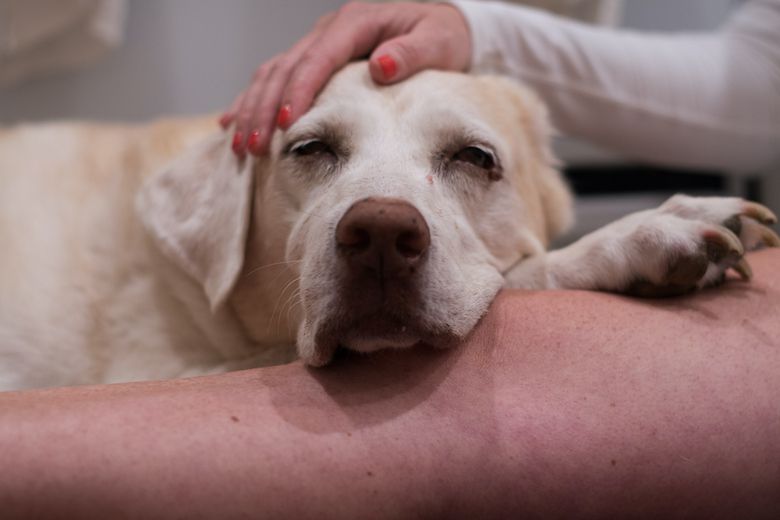Sit Down and Take a Deep Breath: Hope and Healing After a Pet Cancer Diagnosis
Hearing the words “your pet has cancer” is one of the most heartbreaking moments a pet guardian can face. For many years, a cancer diagnosis in pets was seen as a death sentence — but today, there is hope.
With advances in veterinary medicine, nutrition, and integrative care, more pets are living longer, fuller lives after a cancer diagnosis. In fact, many aspects of cancer in dogs and cats are similar to human cancers, meaning that much of what we’ve learned from human medicine now helps pets, too.
Managing Stress After a Pet’s Cancer Diagnosis
From the moment you learn your cherished pet has cancer, it’s important not to let fear and stress take over. Emotional stress affects not only you but also your pet — and pets are incredibly sensitive to our energy.
When we’re anxious or overwhelmed, it’s harder to focus and make clear decisions. Try to stay calm, positive, and proactive. Your emotional strength will help your pet feel safe and supported throughout their journey.
Simple ways to manage stress include:
-
Taking slow, deep breaths before appointments or difficult conversations
-
Going for walks or spending quiet time with your pet
-
Reaching out to support networks like Kali’s Wish Cancer Foundation
Remember: taking care of yourself helps you take better care of your pet.
Gather Information About Your Pet’s Cancer
Knowledge is empowering. Ask your veterinarian for details about your pet’s specific type of cancer and its stage. Write down questions before appointments, and if possible, request a referral to a veterinary oncologist (cancer specialist).
A cancer diagnosis can feel overwhelming, but understanding your options helps you make confident, informed choices.
You may also want to consult a holistic or integrative veterinarian who can guide you on complementary therapies, natural supplements, and nutrition to support your pet’s overall health.
Stay Positive and Committed
A positive attitude truly makes a difference. Decide early on that cancer is not going to define your pet’s story. Focus on what you can control — quality of life, comfort, and love.
Your pet looks to you for strength. Staying upbeat, even in challenging moments, helps them stay calm, happy, and more resilient during treatment.
Involve the Whole Family
When a pet has cancer, it affects the entire family. Once you’ve gathered the information you need, take time to share it with everyone — including children, who may need extra care and reassurance.
Making decisions together helps everyone feel involved and ensures consistent love and support for your pet.
Understanding Treatment Options
Early detection is one of the most important factors in successful treatment. Paying attention to small physical or behavioral changes can make all the difference.
Current pet cancer treatments may include:
-
Surgery to remove tumors
-
Chemotherapy or radiation therapy
-
Immunotherapy and cancer vaccines, which are emerging as exciting new treatment options
-
Holistic therapies, such as herbal supplements, acupuncture, and nutritional support
In addition to medical treatment, emotional care, exercise, and proper nutrition all contribute to your pet’s recovery and quality of life.
Focusing on Quality of Life
Sometimes, the best decision isn’t aggressive treatment but ensuring your pet remains comfortable and happy.
Pets don’t dwell on the past or worry about the future — they live in the present moment. They forgive easily, love unconditionally, and depend on you to make compassionate choices that protect their well-being.
Your love, attention, and care matter most — from the first day to the last.
You’re Not Alone — Kali’s Wish Is Here to Help
Facing pet cancer can feel overwhelming, but you don’t have to go through it alone. Kali’s Wish Cancer Foundation is an organization dedicated to pet cancer support, education, and resources.
Learn more about pet cancer and how we can help on our Health Hub.

